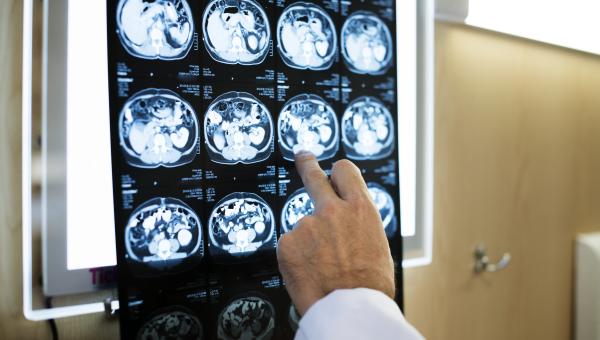News:Research and scientific results
Read the latest news about research and scientific resultats on Alzheimer's disease at the Barcelonaβeta Brain Research Center (BBRC).
A new BBRC study links Alzheimer's biomarkers to symptoms of anxiety and depression during confinement by Covid-19
More than 900 people without cognitive alterations from the Alfa Study, which has the support of the "la Caixa" Foundation, have participated in the research.
A new study identifies two biomarkers in the blood that better capture early signs of Alzheimer's
The study, which used data from almost 400 participants of the ALFA+ Study, determines that the biomarkers p-tau231 and p-tau217 measured in the blood are suitable for indicating brain changes related to the amyloid protein in people without cognitive symptoms.
A new study shows that alterations in biomarkers are associated with higher volumes of gray matter and an increase in glucose metabolism in the brain in cognitively healthy people
Research helps to better understand the relationship between biomarkers of Alzheimer’s disease and the pathophysiological mechanisms that are altered in their early stages.
The researcher Marta Milà defends the third doctoral thesis done at the BBRC
The thesis develved into urrent knowledge of the disease during its preclinical stage and provides new evidence for its early detection.
Identified in the blood a biomarker that allows to detect in a very precise way the initial phases of the Alzheimer’s disease
Researchers at the Pasqual Maragall Foundation's research center, the Barcelonaβeta Brain Research Center (BBRC), with the support of the “la Caixa” Foundation, have detected that the glial fibrillar acid protein (GFAP) is a very accurate biomarker for diagnosing in blood the early stages of Alzheimer’s disease.
The project on artificial intelligence algorithms in magnetic resonance obtains a 'Digital EIT 2021'
The organization under the European Commission will finance part of the project
"A titanic effort is being made to understand Alzheimer's disease in its early stages"
Interview with Gemma Salvadó, researcher of the Neuroimaging Group, after obtaining her PhD
Identified a new association between light neurofilaments and other markers of Alzheimer's disease
Researchers at the Barcelonaβeta Brain Research Center (BBRC) have identified that people with amyloid pathology and subjective cognitive impairment have an increase in light neurofilaments (NfL) in the cerebrospinal fluid and a lower volume in the hippocampus.
Weight loss may be an indicator of an increased risk of developing Alzheimer's disease
A study led by the BBRC, with the support of the “la Caixa” Foundation, suggests that people at increased risk of developing Alzheimer's experience weight loss that would precede cognitive impairment.


















